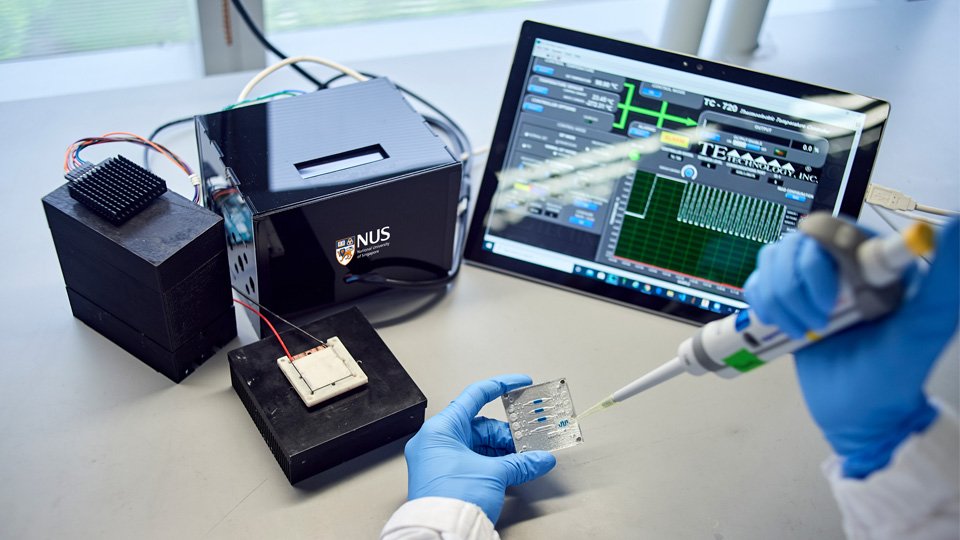
Image credit- NUS
A team of researchers at the National University of Singapore (NUS) has developed a portable COVID-19 micro-PCR diagnostic system – called Epidax – that enables rapid and accurate on-site screening of infectious diseases and significantly reduces the time required to analyse patient samples.
Epidax, which is a microfluidics-based PCR diagnostic system, is about the size of a toaster and very portable. It can be deployed quickly and easily on-site for virus infection screening.
Currently, nasal swab samples are first collected at a clinic or testing site, and sent to a laboratory for processing to extract the RNA, before the PCR test is conducted.
The Epidax system uses a specially designed microfluidic chip that comprises micro-channels where samples are processed. By employing microfluidic technology, the system is able to process a smaller amount of sample for quicker detection of COVID-19 infection.
Using a reagent which enables both RNA extraction and amplification on the chip, the PCR test can be performed right after a nasal swab sample is collected, thus bypassing the intermediate step of RNA extraction.
All these features significantly minimise sample handling and shorten the test and waiting time, so patients can get their test results in about an hour.
The NUS team has filed a patent for this invention, and is in talks with a medical technology company to commercialise this technology.




